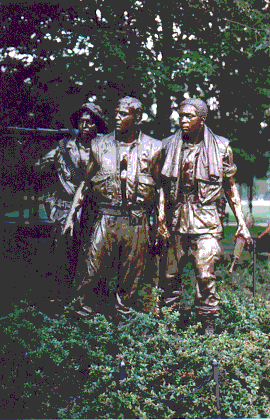All Nonfiction
- Bullying
- Books
- Academic
- Author Interviews
- Celebrity interviews
- College Articles
- College Essays
- Educator of the Year
- Heroes
- Interviews
- Memoir
- Personal Experience
- Sports
- Travel & Culture
All Opinions
- Bullying
- Current Events / Politics
- Discrimination
- Drugs / Alcohol / Smoking
- Entertainment / Celebrities
- Environment
- Love / Relationships
- Movies / Music / TV
- Pop Culture / Trends
- School / College
- Social Issues / Civics
- Spirituality / Religion
- Sports / Hobbies
All Hot Topics
- Bullying
- Community Service
- Environment
- Health
- Letters to the Editor
- Pride & Prejudice
- What Matters
- Back
Summer Guide
- Program Links
- Program Reviews
- Back
College Guide
- College Links
- College Reviews
- College Essays
- College Articles
- Back
Cold War
After World War 2, European nations were suffering from debt, starvation, and homelessness as a result of Hitler's destruction. Scared of future aggression, the United Nations was created as a way to maintain peace, with Stalin, Winston Churchill, and Franklin Roosevelt as the major powers. After Roosevelt's death, he was replaced with Truman in the United Nations, who had suspicions about Stalin's plan for Eastern European countries. This caused tensions between the Soviet Union and the United States, and started the Cold War. Although the third world and the arms race both helped start the Cold War, the United States and Soviet Unions different ideologies was the major cause because of each sides need to spread their own ideas.
A difference in ideologies can be seen as the biggest cause of the Cold War. The United States and the USSR both had different opinions on politics, Eastern Europe, Germany's fate after World War 2. Winston Churchill gave a famous speech in 1964 called the Iron Curtain. He, addressing the American citizens, spoke of how the world depended on America not becoming isolationists again. He also spoke of a line that divided the Soviet influence from democracy (Doc 1). Capitalist United States also believed that Germany should be helped after the damage they took from World War 2. Secretary of State Marshall believed that if they werent, it would have a harmful effect on the world (Doc 3). He said this because America would be unable to trade and there would be no political stability or peace if Europe was not stable. The Soviet Union thought that Germany should be punished for its atrocities during WW2. The need for the spreading of their own ideology pulled the United Nations and the United States into the Cold War.
The Soviet Union and the United States fought for control of third world countries, causing the Cold War. The USSR wanted the spread of communism while the US fought for the spread of capitalism. Since the US had more money than the USSR after World War 2, they could aid countries struggling from the war. President Truman did this, called containment, on countries such as Turkey and Greece to spread the ideology of Capitalism (Doc 2). The policy of containment was spoken about and executed by Truman because, in return for aid, receiving countries would become Capitalist. In an attempt to fight for the third world, the US and USSR participated in the Cold War.
The arms race was another contributing factor to the Cold War. Both the Soviet Union and the United States raced to develop more weapons than the other. This nuclear build up lead to a continuous fight back and forth of creating bigger, better, weapons. This resulted in an increase in produced and launched missiles (Doc 7). The arms race also converted cuba into an area of danger when the Soviet Union planted missiles upon it, pointing at the US. In response, the United States placed missiles and a barricade outside of Cuba, sending the message that if they crossed, war will commence (Doc 8). Space exploration served as another area for Cold War competition. In a heated race to send a man into space, the Soviet Union and the United States fought to prove the superiority of their technology. It was crucial not to lose to the other side. The Soviets release of ¨Sputnik¨, the first satellite to orbit the earth, came as an unpleasant surprise to the Americans. Burning with passion to beat the Soviets, the Americans became the first country to put a man on the moon. These high tensions during the space race and arms race only added to the uncertainty that was the cold war.
The arms race and the race for the third world were two major causes of the Cold War, but the biggest was the country's difference in ideologies. The different ideologies caused tensions between the nations and excessive competition. A theme throughout the Cold War is brinkmanship. Dangerous events were pushed to the brink of conflict. This tactic was also used in World War 1. All countries involved in that war used brinkmanship with alliances and imperialism. Although there was no bloodshed, the Cold War still had a major impact on the world's economy, government, and military, which can still be seen today.

Similar Articles
JOIN THE DISCUSSION
This article has 0 comments.

All about the cold war